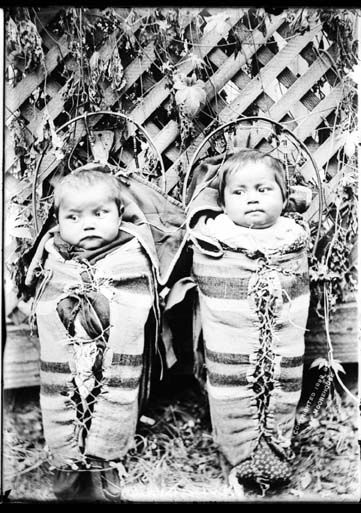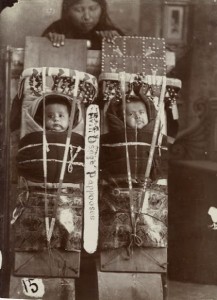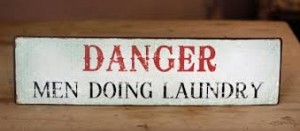“Working mothers” have existed since the day Eve started this whole shindig. It’s impossible to have children – especially babies – without an exponential increase in the daily work load. And regardless of how sophisticated our society has become, much of the increased work load falls on the moms. With a few notable exceptions, the woman of the house usually does the grocery shopping, packs lunches, does the laundry, takes the dog to the vet, makes sure the kids do homework and brush their teeth, and all the other piddly little things that need to be done to keep the modern family afloat. When a little one has a tummy ache or an ear ache, or the night-before-first-day-of-school jitters, one person seems to be bellowed at from the recesses of the dark hallway. And her name is “Mommy.”
Scientific studies have concluded (and generated a lot of controversy, I should add) that men’s and women’s brains are wired differently. Well, yeah. Unless you’ve lived in a secluded bio-dome or under a rock, you’ve probably suspected as much. Aside from the obvious “if we were all the same, it would be boring”, there is good reason for men and women to function differently. I didn’t say one was better than the other. I believe we are designed to complement each other.
In the past, men’s roles were to protect and to provide for the family group (deterring attacks from dangerous animals or warring tribes, hunting, trading… all that good stuff.) Women often stayed a little closer to the home dwelling, and in addition to many other crucial tasks, traditionally had the care and feeding of children as a primary responsibility. Again…Well, yeah. Women are biologically equipped to feed babies. Men (as any father of a nursing baby can tell you) are in over their heads when the youngest member of the family gets hungry.
So, scientific data that suggests women are designed to “multitask” really shouldn’t surprise us. (Side note: The term “multitasking” originated in the computer engineering industry. It refers to the ability of a microprocessor to process several tasks simultaneously. The first published use of the word “multitask” appeared in an IBM paper describing the capabilities of the IBM System/360 in 1965.)
Native American Indian women created functional and often beautiful carriers for their babies. These enabled them to take their babies with them while performing daily tasks such as scraping skins from the hunt, gathering berries and healing herbs, and cooking. Multitasking. It’s not a new concept, just a fancy word that describes what women have been doing since the very beginning. Have you seen the National Geographic photos of beautiful African women with baskets on their heads and children in tow? How about the Vietnamese women in rice paddies with children on their backs? Through the years, women have come up with inventive ways to do several things at once. Why? Things had to be done!
Have you seen the modern upgrades to the old-fashioned baby boards? These savvy moms and dads are using a centuries old concept to keep their babies close and still have hands free for important daily tasks like cooking dinner and shopping. (This mom of triplets is amazing. Wow. Just wow.)
In my research for Season of Forgiveness, I came across a very clever invention from the early 1900’s. It was a wringer washing machine with a cradle built onto the top of the wringer. As the lady of the house turned the crank to wring the water out of the clothes, it rocked the baby. (Alas, I did not get a picture.) Multitasking. Or, in the terminology of the day, survival.
Since my daughters-in-law (yes, that’s plural) are expecting and will be expanding our family soon, I’ve been thinking about all of the challenges and changes that come with babies. And so have they! They’ve read the latest books and blogs on parenting, busily prepared nurseries, and stocked up on diapers. The truth is, regardless of how prepared you are, and how much you want to be a parent, sometimes… it’s just hard. Especially those first few months. Anybody who tells you differently is lying. But…
If you keep it all in perspective (and here, I’m talking about perspective during the midnight meltdowns that most new parents experience at least once), I’m pretty sure some things are better now versus a hundred years ago. Disposable diapers, baby food in jars, washing machines that you don’t have to turn by hand, (and electricity in general!) not to mention ultrasounds, NICU, and all of the medical miracles we have today.
But by far the most important change, the MEN who have stepped up to take a more active role in parenting. Thanks daddies. Thank you for all of those late night diaper changes, the bedtime stories that only you do the right voices for, the horsey rides, and for all of the dozens of little things you do to keep the family rolling. Your kids will be better people because of you. Your wife will love you for it – and if she doesn’t, she should. And you, daddies, will have the joy of being a part of your children’s lives from the very beginning.
So, new moms: take courage! Women have been successfully mothering babies for eons. (Okay, not all of them did a great job – but you will.) Yes, it will be challenging. And even though you may be called upon to juggle corporate conferences and breastfeeding, or maneuver rush hour traffic with wailing twins in the backseat, you won’t have to strap the babies to your back while scraping a buffalo hide nor will you be required to rock the baby while squeezing dirty wash water out of your husband’s drawers. And another important change from a hundred years ago: your husbands know how to do laundry. Trust me. They do know how. But you might push your fancy sweaters to the back of the closet… at least for a little while .



